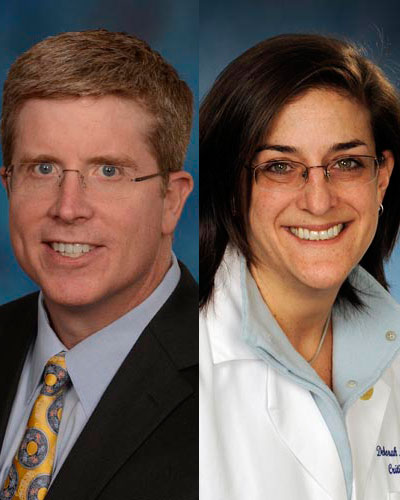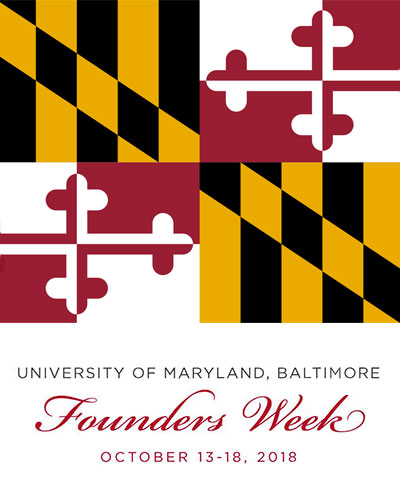September 08, 2016

$11 Million Study by University Of Maryland School Of Medicine Researchers Will Examine Effectiveness of Aspirin and Heparin
Every year in the United States, thousands of high-risk fracture patients who have been admitted to trauma centers will suffer life-threatening blood clots related to the fracture. In rare cases these clots can even travel to the lungs, where they can cause sudden death.
To reduce the risk of these clots, doctors have for years prescribed low molecular weight heparin, a blood thinner, to many fracture patients. Is that the most effective option? Some researchers argue that aspirin may be just as effective at preventing clots in these patients.
A comprehensive new study led by researchers at the University of Maryland School of Medicine (UM SOM) will try to resolve this important question. The five-year, $11 million project will partner with 10 other trauma centers around the country and will include 13,000 patients, all of whom have suffered fractures. It will be the largest study of this question ever undertaken.
“This is an important question, and we just don’t know the answer,” said Robert V. O’Toole, MD, the Hansjörg Wyss Medical Foundation Endowed Professor in Orthopaedic Trauma, at UM SOM, head of the school’s Division of Orthopaedic Traumatology and Chief of Orthopaedics for the University of Maryland Medical Center’s R Adams Cowley Shock Trauma Center.
“I think this study, with its depth and breadth, will go a long way toward giving us useful information that will help us treat patients more safely and effectively,” added Co-Principal Investigator on the study Deborah Stein, MD, the Chief of Trauma at the R Adams Cowley Shock Trauma Center.
Half of the patients will receive injectable low molecular weight heparin, while the other half will receive aspirin. While aspirin can be taken as a pill, low molecular weight heparin must be injected.
The researchers will seek to establish which approach works better at preventing clots and reducing deaths from clots. They will also look at whether one medicine is linked to fewer complications that require further treatment for the fracture. Some researchers suspect that low molecular weight heparin may be associated with surgical complications and increase bleeding more than is necessary, but this is currently not proven.
Overall, blood clots cause about 300,000 deaths in the U.S. annually. Injuries that break certain bones, like the hip or thigh bone, which are common, are also associated with a high risk of clots. The issue is complicated because medications to prevent blood clots can also increase the risk of bleeding or other complications from the fracture.
The research will be funded by the Patient-Centered Outcomes Research Institute (PCORI), an independent, nonprofit organization authorized by Congress in 2010. Its mission is to fund research that will provide patients, their caregivers, and clinicians with the evidence-based information needed to make better-informed healthcare decisions.
“This project was selected for PCORI funding not only for its scientific merit and commitment to engaging patients and other stakeholders, but also for its potential to fill an important gap in our health knowledge and give people information to help them weigh the effectiveness of their care options,” said PCORI Executive Director Joe Selby, MD, MPH. “We look forward to following the study’s progress and working with Dr. O’Toole and his colleagues to share the results.”
The study will be managed in partnership with the Major Extremity Trauma Research Consortium (METRC, www.metrc.org), centered at the Johns Hopkins Bloomberg School of Public Health. The participating hospitals include the University of Maryland’s R Adams Cowley Shock Trauma Center, Carolinas Medical Center, Harborview Medical Center, Indiana University Health Methodist Hospital, Massachusetts General Hospital, Rhode Island Hospital, San Antonio Military Medical Center, University of Pittsburg Medical Center, University of Texas Health Sciences Center at Houston, Vanderbilt University Medical Center and Wake Forest Health Sciences.
“Once again, our researchers are leading the way both scientifically and clinically,” said UM SOM Dean E. Albert Reece, MD, PhD, MBA, who is also vice president for medical affairs at the University of Maryland and the John Z. and Akiko K. Bowers Distinguished Professor. “This study is a fantastic example of cutting-edge 21st century research, combining multiple specialties – orthopaedics, trauma care, and cardiovascular medicine – in innovative, ambitious ways. I look forward to seeing the results.”
A study of this size, requires a substantial interdisciplinary scientific committee. In addition to Dr. O’Toole and Dr. Stein, the study’s scientific committee includes Ted Manson, MD, Gerard Slobogean, MD, Stephen Breazeale, CRNP, and Nathan O’Hara, MHA, from UM SOM, Daniel Mullins, PhD, from University of Maryland School of Pharmacy, Renan Castillo, PhD, Stephen Wegener, PhD, Eliot Haut, MD PhD, Daniel Scharfstein, ScD, Katherine Frey, MPH, Nancy Kass, ScD from Johns Hopkins University, Reza Firoozabadi, MD, from the University of Washington, and Herman Johal, MD, from McMaster University.
About the University of Maryland School of Medicine
The University of Maryland School of Medicine was chartered in 1807 and is the first public medical school in the United States and continues today as an innovative leader in accelerating innovation and discovery in medicine. The School of Medicine is the founding school of the University of Maryland and is an integral part of the 11-campus University System of Maryland. Located on the University of Maryland’s Baltimore campus, the School of Medicine works closely with the University of Maryland Medical Center and Medical System to provide a research-intensive, academic and clinically based education. With 43 academic departments, centers and institutes and a faculty of more than 3,000 physicians and research scientists plus more than $400 million in extramural funding, the School is regarded as one of the leading biomedical research institutions in the U.S. with top-tier faculty and programs in cancer, brain science, surgery and transplantation, trauma and emergency medicine, vaccine development and human genomics, among other centers of excellence. The School is not only concerned with the health of the citizens of Maryland and the nation, but also has a global presence, with research and treatment facilities in more than 35 countries around the world.
Contact
Office of Public Affairs
655 West Baltimore Street
Bressler Research Building 14-002
Baltimore, Maryland 21201-1559
Contact Media Relations
(410) 706-5260
Related stories

Monday, October 15, 2018
University of Maryland School of Medicine Scientists Receive Prestigious UMB Founders Week Awards
Several experts at the UMSOM received prestigious awards commemorating the UMB 2018 Founders Week. Among them, Karen Kotloff, MD, Professor of Pediatrics, was named "Researcher of the Year" for her extensive work in infectious diseases in the U.S. and developing countries. The MARS team – Steven I. Hanish, MD, Visiting Associate Professor of Surgery, Thomas M. Scalea, MD, FACS, FCCM, The Honorable Francis X. Kelly Distinguished Professor in Trauma Surgery, and Deborah Stein, MD, MPH, FACS, FCCM, The R Adams Cowley, MD Professor in Shock and Trauma– were named "Entrepreneurs of the Year" for their liver dialysis device called the Molecular Absorbent Recirculating System (MARS).

Wednesday, October 26, 2016
Researchers Develop System to Classify Gunshot Wounds and Other Similar Injuries to the Head
Every year, more than 32,000 Americans die from gunshot wounds. A significant proportion of these deaths involve head wounds. Despite this massive public health burden, researchers know little about the variables that determine whether a victim of these injuries will live or die.

Thursday, May 26, 2016
Leading Surgeon Scientist and Trauma Chief Dr. Deborah Stein Invested as Inaugural R Adams Cowley Professor at the UM SOM
In a moving speech before a large audience recently at Westminster Hall, Deborah M. Stein, MD, MPH, newly invested as the R Adams Cowley, MD Professor in Shock and Trauma, used those words to reflect on her father’s influence and how proud he is to see the family’s legacy of healing continue. "Becoming a surgeon was all about my father -- I wanted to be him, and to heal with my hands, just as he had done."
